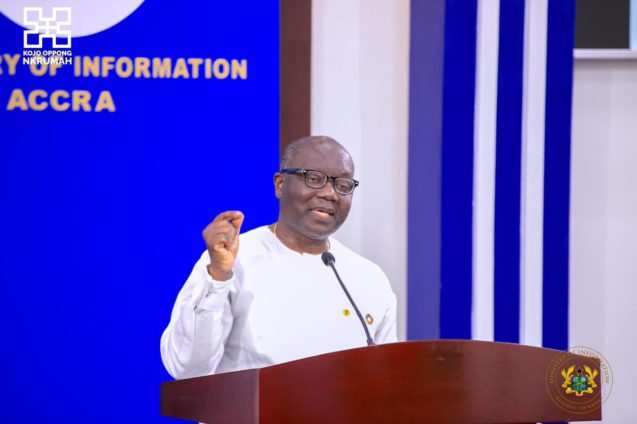The Ministry of Finance has replied no to a question as to whether the government will terminate the E-levy because the International Monetary Fund (IMF)will give Ghana money.
The Ministry explained that the IMF lending to Ghana will be for balance of payments support, i.e. toshore up the international reserves.
“Government is committed to ensuring the smooth operationalisation of all taxes including the e-levy to ensure that in addition to the IMF’s resources, government can continue to support its developmental goals on its own while ensuring that tax-to-GPD ratio increases to the peer range of 16%-18%.
“An IMF-supported programme is likely to encourage the government to investigate the factors hindering the success of the e-levy (including by providing technical assistance if needed) and come out with strategies to improve it. Additionally, other tax measures could be considered for the medium-term,” the Ministry said.
Following the announcement that Ghana was seeking support from the IMF, some analysts including the Executive Director of the Africa Centre for Energy Policy (ACEP) Mr Benjamin Boakye said the e-levy must be abolished.
Speaking on the New Day show with Berla Mundi on TV3 Monday July 4, Mr Boakye said that it was obvious from the get go that the e-levy was not going to work.
Asked whether the e-levy should be cancelled following the decision by the government to head to the IMF, Mr Boakye answered “The e-levy, we told government it wasn’t going to work from the start and they didn’t listen. It is part of the reasons why we woke up one day and we realized that we are getting 10 per cent.
“If you are trying to tax the poor they have more energy to resist, it is a pure economic fact. You rather want to help the poor to grow to become big and contribute tax. If you check our Gross Domestic Product (GDP), 71 per cent come from the formal sector. So what that tells you is that the leakages are at the formal sector, so trying to spend more money to target the 30 per cent of the poor bracket, you are not going to get revenue from there. It is clear from the data which government refused t look at.”
“I think it has to go,” he stressed.
By Laud Nartey|3news.com|Ghana


